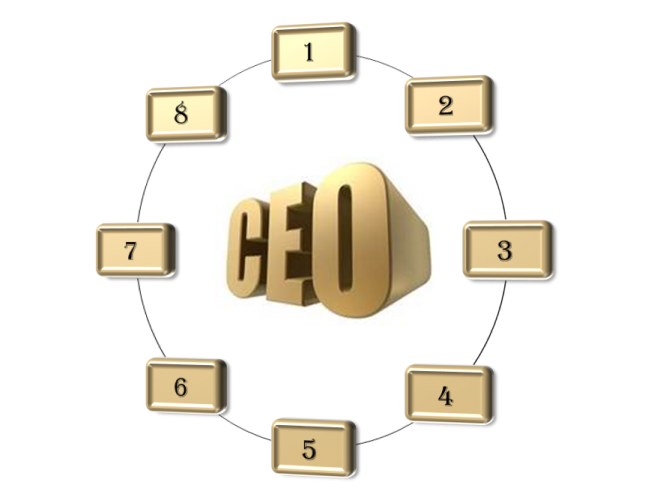
One of my key lessons learned about being a CEO and small business owner comes from Chris Gardner, author of the book and subject of the Will Smith movie “Pursuit of Happyness”. In a reception of Inc award winners a few years ago, he shared that running a business ultimately requires you to be willing to cover payroll out of your back pocket. I’ve done that more times than I can count over the years, so at least by that criteria I suppose I have what it takes to be CEO of my business.
As I continue to coach the expected successor of an @Vistage member company in what it takes to be CEO, I’m guessing this isn’t the critical lesson he needs to learn. This individual was recently promoted to COO from his previous VP of Sales position, so gaining insights into what it takes to be a C-level leader, however, will be a valuable step towards his continued success. So how do I share these kinds of insights with him? Invite him to lunch with another @Vistage member I hold in very high regard of course so that he can learn for himself directly from one of the most successful and knowledgeable CEOs I know.
The following are some of the profound takeaways from that conversation. Eight simple yet powerful leadership principles any business leader – let alone any business owner – can learn from!
- The CEO’s primary responsibility is setting the vision and strategic direction for the organization, literally mapping the company’s present state to its future opportunities. More tactical management and especially execution of day-to-day tasks is not the CEO’s responsibility.
- Nothing can stick to you as the CEO. Being strategic requires maintaining a 30,000-foot perspective and delegating tasks to the appropriate staff. Successful CEO’s hold others accountable to their particular responsibilities instead of getting into the details, and ultimately they get more done by doing less. It’s the difference between being the doctor actually caring for the patients and the chief administrator running the hospital!
- We can’t be one of the smart people. CEO’s have to surround themselves with people who are smarter than them to manage and perform the actual work. By design, a good CEO’s technical skills actually get stale and become less relevant over time as his/her leadership focus increases.
- Being CEO is about getting things unstuck! Even the best CEOs can’t tell their functional leaders how to do their jobs. It takes subtle influence, not positional power, to change behavior by pulling everyone out of the weeds and creating the space for conversations that aren’t otherwise happening to happen. What everyone did to that point apparently isn’t working anymore if you’re stuck, and people can’t get unstuck simply by being more efficient on their own.
- Since the CEO is supposed to be strategic and future-focused – attending to tomorrow’s issues and opportunities before they become problems – there is nothing so critical that needs a CEO’s attention “right now”. If it does, that’s not the real problem!
- A CEO’s work life can be absorbed by meetings all day every day if he/she lets it. Time block at least one if not two days per week for getting work done outside of these meetings, and then structure any critical meetings around those other two or three days of the week. This leaves at least one day per week – perhaps Wednesdays – for any emergent matters that require attention. Successful CEO’s also prioritize time for regular exercise as part of this busy schedule.
- Having an executive assistant isn’t about ego. It’s simply about being productive and managing your time efficiently! It also makes it much easier for everyone else to schedule time with and get access to a very busy and otherwise often scattered CEO.
- A telltale sign CEOs are being successful is when they do their jobs efficiently, are of value to their companies, and enjoy their lives at least a little bit along the way!
